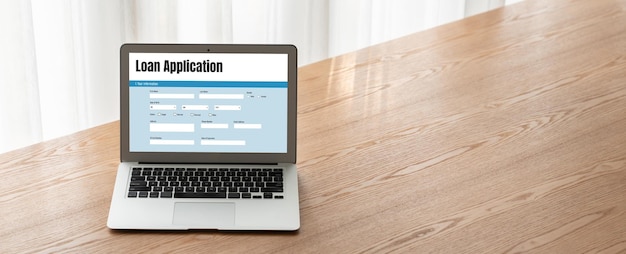Understanding Federal Student Loan Forgiveness Updates in 2025

Understanding the Latest Updates to Federal Student Loan Forgiveness Programs in 2025 involves navigating complex policy changes, eligibility requirements, and application processes, all aimed at providing financial relief to borrowers burdened by student loan debt.
The landscape of Understanding the Latest Updates to Federal Student Loan Forgiveness Programs in 2025 is constantly evolving, making it crucial for borrowers to stay informed. This article breaks down the key changes, eligibility criteria, and application processes you need to know.
What’s New in Federal Student Loan Forgiveness for 2025?
Understanding the recent shifts in federal student loan forgiveness programs is essential for anyone carrying student debt. Several key changes are expected in 2025, designed to broaden eligibility and simplify the application process.
These changes aim to provide more accessible pathways to debt relief, addressing the financial strain faced by many borrowers. Let’s delve into the specifics of these updates.
Expanded Eligibility Criteria
One of the most significant updates is the expansion of eligibility criteria. This includes considerations for borrowers with specific income levels and employment types.
Revised income thresholds and modifications to public service loan forgiveness (PSLF) requirements are also being introduced.
- Increased income thresholds for income-driven repayment (IDR) plans.
- Simplification of the PSLF application process.
- Inclusion of a broader range of qualifying employment for PSLF.
These adjustments make forgiveness more attainable for a wider range of borrowers, particularly those in lower-income brackets and public service professions.

Income-Driven Repayment (IDR) Plan Updates
Income-Driven Repayment (IDR) plans are a cornerstone of federal student loan forgiveness. Significant changes are coming to these plans in 2025, impacting how monthly payments are calculated and how quickly loans can be forgiven.
Staying informed about these updates is vital for borrowers looking to manage their loan payments effectively and potentially achieve forgiveness faster.
Revised Payment Calculations
The way monthly payments are calculated under IDR plans is being revised. These changes are intended to lower monthly payments for most borrowers.
The updates will likely involve a more generous definition of discretionary income and a lower percentage of income required for payment.
- Lower percentage of discretionary income required for monthly payments.
- Increased income exemption levels, reducing the amount considered discretionary.
- Streamlined enrollment process for IDR plans.
These adjustments aim to make IDR plans more accessible and sustainable for borrowers, reducing the risk of default and increasing the likelihood of eventual forgiveness.
Public Service Loan Forgiveness (PSLF) Enhancements
The Public Service Loan Forgiveness (PSLF) program offers loan forgiveness to borrowers employed by qualifying non-profit or government organizations. Enhancements to this program are slated for 2025, making it easier for eligible individuals to receive forgiveness.
These enhancements address past issues with the program and provide clearer pathways to forgiveness for public service workers.
Simplified Application Process
One of the primary goals is to simplify the PSLF application process. The previous process was often criticized for being complex and confusing.
The new process aims to reduce paperwork and provide clearer guidance to applicants.
- A streamlined online application portal.
- Automated tracking of qualifying payments.
- Improved communication and support for applicants.
These improvements aim to eliminate barriers to entry and ensure that more eligible public service workers receive the loan forgiveness they deserve.

How to Prepare for These Changes
Preparing for the upcoming changes in federal student loan forgiveness programs is crucial. Borrowers need to take proactive steps to ensure they can take advantage of these new opportunities.
This preparation includes gathering necessary documentation, updating contact information, and understanding the specific requirements of each program.
Gather Necessary Documentation
Gathering all required documentation is a critical first step. This includes income statements, employment verification, and loan documentation.
Having these documents readily available will expedite the application process.
- Collect W-2 forms and tax returns to verify income.
- Obtain employment certification from qualifying employers.
- Maintain records of all student loan payments.
Organizing these documents in advance will streamline the application process and minimize potential delays.
Common Pitfalls and How to Avoid Them
Navigating federal student loan forgiveness programs can be challenging, and borrowers often encounter common pitfalls. Understanding these challenges and how to avoid them is essential for a successful application.
These pitfalls include inaccurate documentation, missed deadlines, and misunderstandings of eligibility requirements.
Inaccurate Documentation
Providing accurate documentation is crucial. Inaccurate or incomplete documentation can lead to delays or denial of forgiveness.
Double-check all information before submitting any application.
- Ensure all income information matches official records.
- Verify the accuracy of employment dates and employer information.
- Review all loan documents for consistency.
Attention to detail can prevent costly errors and ensure a smoother application process.
Staying Updated and Seeking Professional Advice
The landscape of federal student loan forgiveness is constantly evolving. Staying informed and seeking professional advice is crucial for making the best decisions about your student loans.
This includes monitoring updates from the Department of Education and consulting with financial advisors who specialize in student loan repayment strategies.
Monitoring Official Sources
Keep an eye on official sources for the most up-to-date information. The Department of Education website is the primary source for announcements and policy changes.
Regularly check the website for updates and announcements.
- Subscribe to email updates from the Department of Education.
- Follow the Department of Education on social media for timely announcements.
- Consult the official website for program guidelines and eligibility requirements.
Staying informed ensures that you are aware of any changes that may impact your eligibility or repayment options.
| Key Point | Brief Description |
|---|---|
| 🔑 Expanded Eligibility | More borrowers may qualify due to revised criteria. |
| 💰 IDR Updates | Payment calculations are revised to lower monthly costs. |
| 🧑💼 PSLF Enhancements | Simplified application for public service employees. |
| 📝 Documentation Prep | Gather necessary documents to expedite applications. |
Frequently Asked Questions
▼
In 2025, IDR plans will feature revised payment calculations that lower monthly payments for many borrowers. These changes include a more generous definition of discretionary income and a lower percentage of income required for payment.
▼
Enhancements to PSLF include a simplified application process with a streamlined online portal, automated tracking of qualifying payments, and improved communication and support for applicants, making it easier to apply and qualify.
▼
To prepare, gather W-2 forms and tax returns to verify income, obtain employment certification from qualifying employers, and maintain records of all student loan payments for easy access.
▼
Avoid inaccurate documentation by ensuring all income information matches official records, verifying employment dates, and reviewing loan documents for consistency. Double-check all details before submitting your application.
▼
Stay updated by monitoring official sources like the Department of Education website, subscribing to email updates from them, and following them on social media for timely announcements and program guideline adjustments.
Conclusion
Understanding the latest updates to federal student loan forgiveness programs in 2025 is vital for borrowers seeking financial relief. By staying informed, preparing necessary documentation, and avoiding common pitfalls, you can navigate these changes effectively and potentially benefit from expanded forgiveness opportunities.
